Just a few months after the AMD Ryzen 7 9800X3D graced us with its presence, the Ryzen 9 9950X3D brings its 3D V-Cache technology to a 16-core, 32-thread gaming processor. This chip is undeniably overkill for most users, but it's perfectly poised to keep pace with high-end graphics cards like the Nvidia RTX 5090 or its successors. The sheer power of this processor is impressive, yet it comes with a steep $699 price tag and a 170W power budget, making it a challenging choice for anyone not building a top-tier gaming rig. For the majority, the Ryzen 7 9800X3D remains a more practical option.
Purchasing Guide
The AMD Ryzen 9 9950X3D will be available starting March 12, with a suggested retail price of $699. Keep in mind that AMD's processor prices can fluctuate based on market demand.
AMD Ryzen 9 9950X3D – Photos
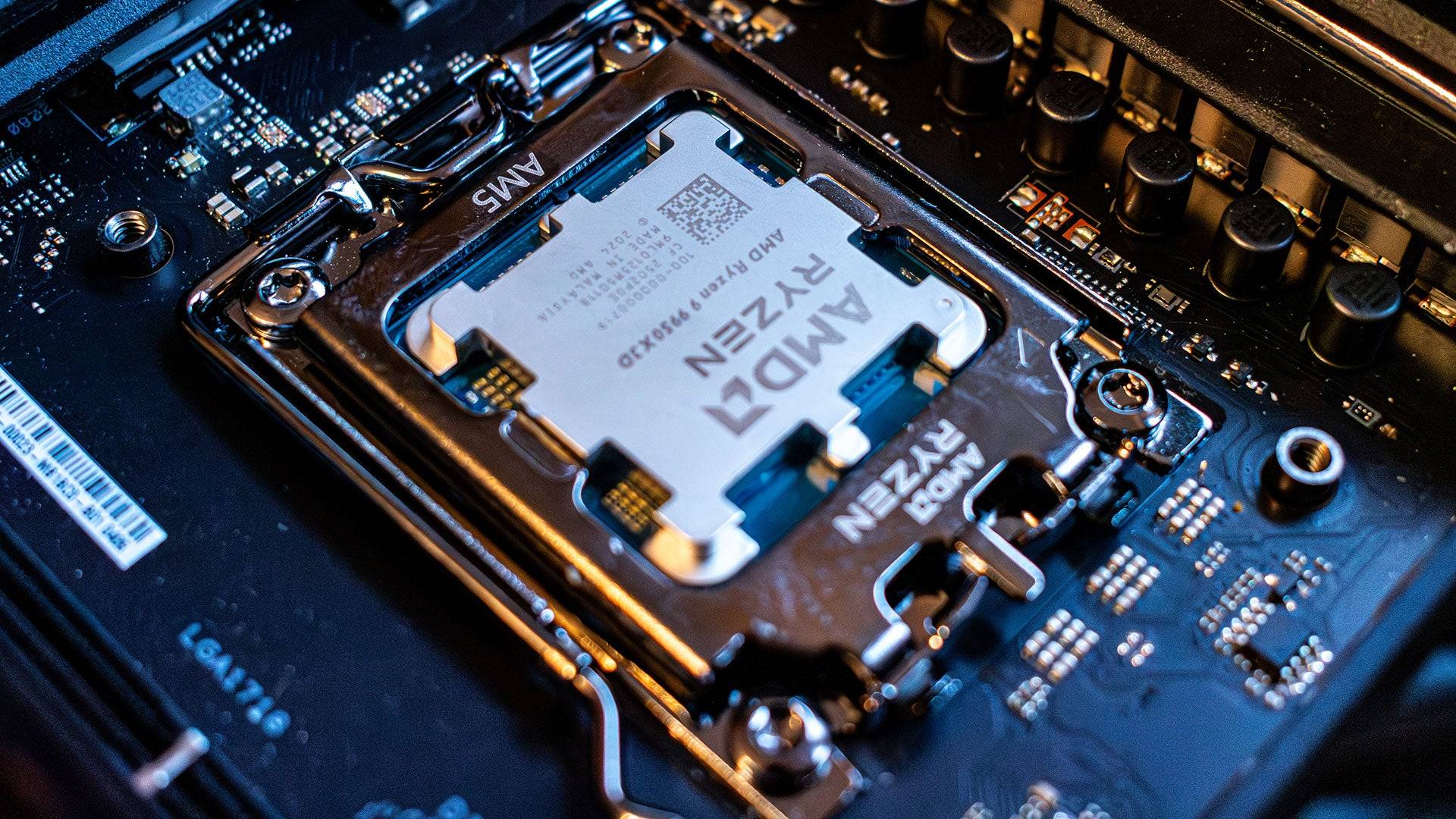
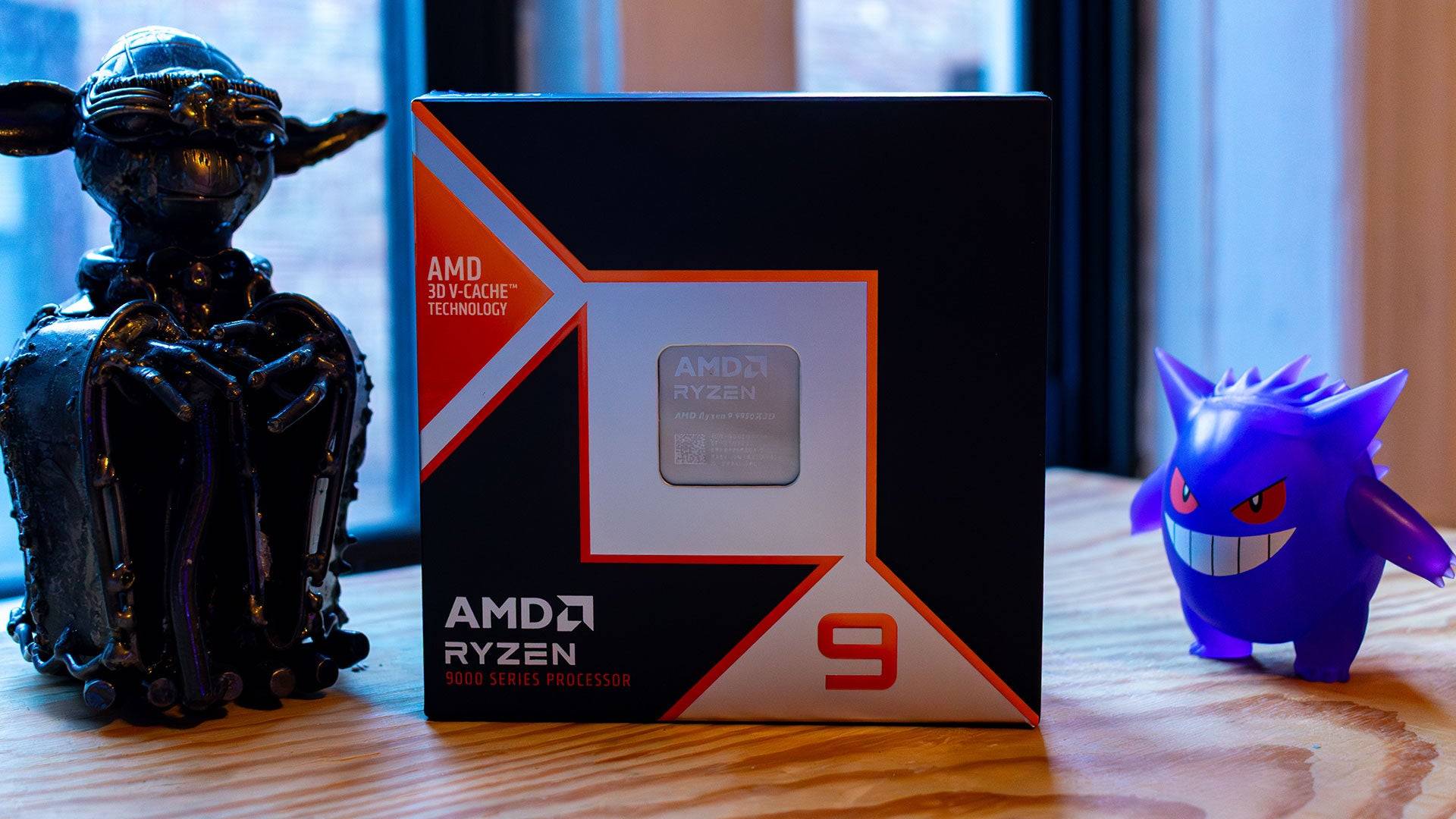 3 Images
3 Images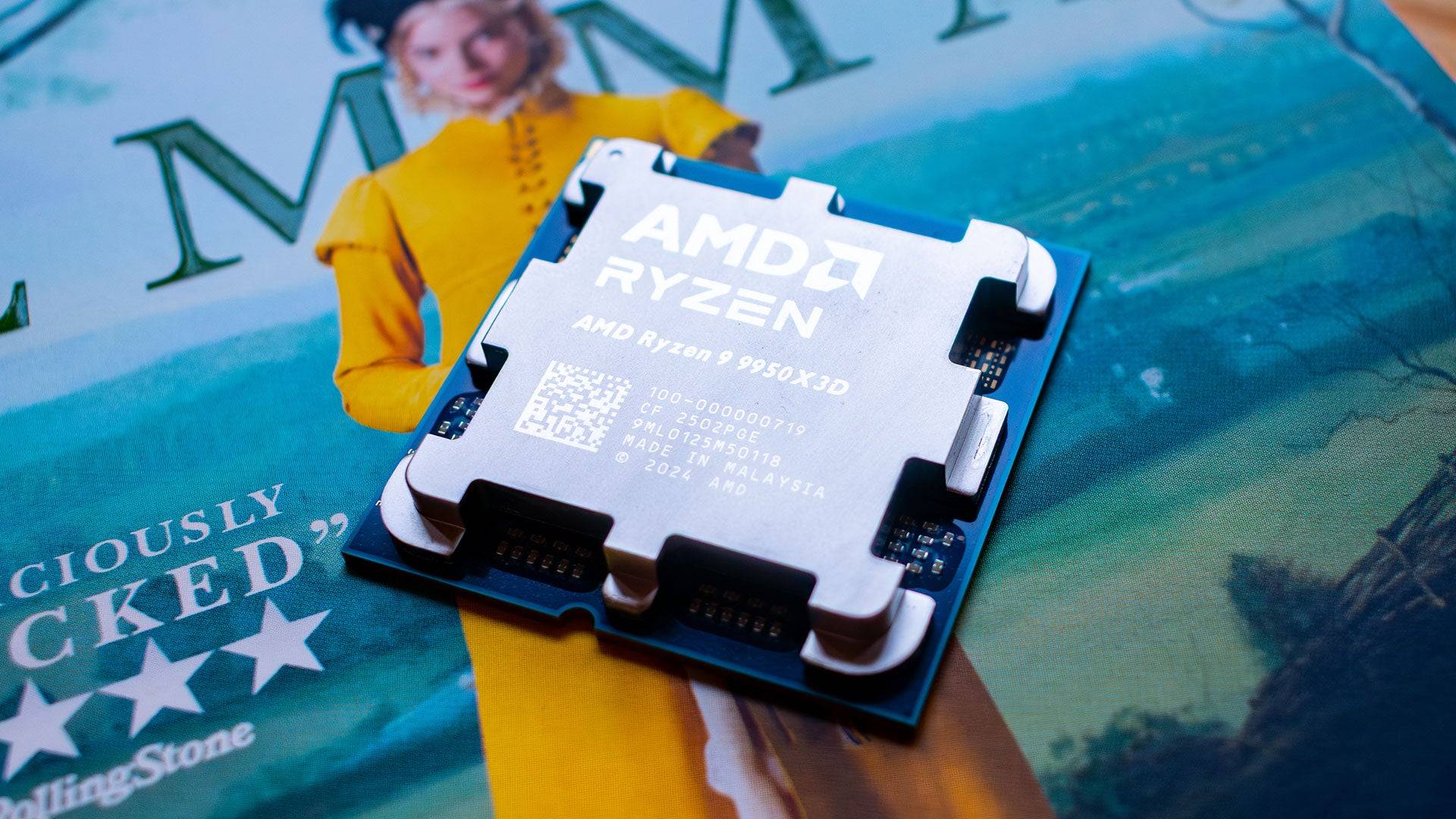
Specs and Features
The AMD Ryzen 9 9950X3D harnesses the power of Zen 5 cores, similar to the regular 9950X, but enhances them with the 2nd-generation 3D V-Cache, previously seen in the Ryzen 7 9800X3D. This combination ensures robust multi-core performance alongside improved gaming capabilities due to an expanded cache. A notable design change is the placement of the 3D V-Cache directly beneath the CPU cores, rather than above them as in the Ryzen 9 7950X3D. This seemingly minor adjustment significantly improves thermal performance by positioning the Core Complex Die (CCD) closer to the Integrated Heat Spreader (IHS), which enhances heat dissipation. This, in turn, allows the processor to maintain higher performance levels over extended periods due to AMD’s thermal-aware algorithms.
The strategic placement of the cache not only aids in thermal management but also reduces data latency by minimizing the distance the data needs to travel. The 9950X3D boasts a hefty 144MB of combined L2 and L3 cache, matching the previous generation's 7950X3D and far surpassing non-X3D processors. Both the 9950X and 9950X3D share a 170W TDP, although the original 9950X can have a higher potential PPT. In testing, both CPUs peaked at around 200W, but the 9950X3D managed lower peak temperatures, hitting 79°C on a different cooler than the 9950X.
Fortunately, the 9950X3D is compatible with any AM5 AMD motherboard without requiring a new chipset. AMD has committed to supporting this socket until at least 2027, ensuring long-term platform viability.
AMD Ryzen 9 9950X3D – Benchmarks
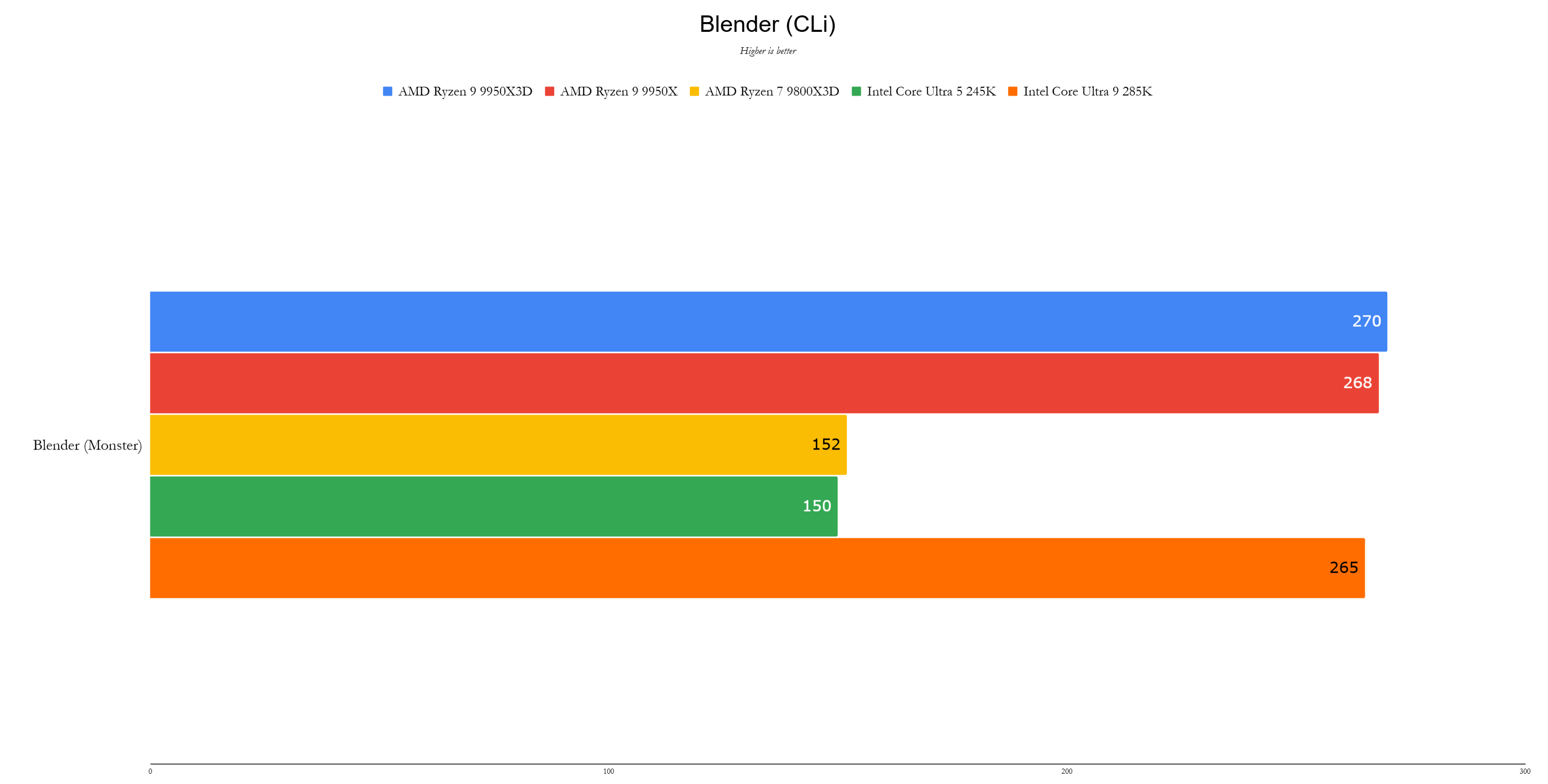
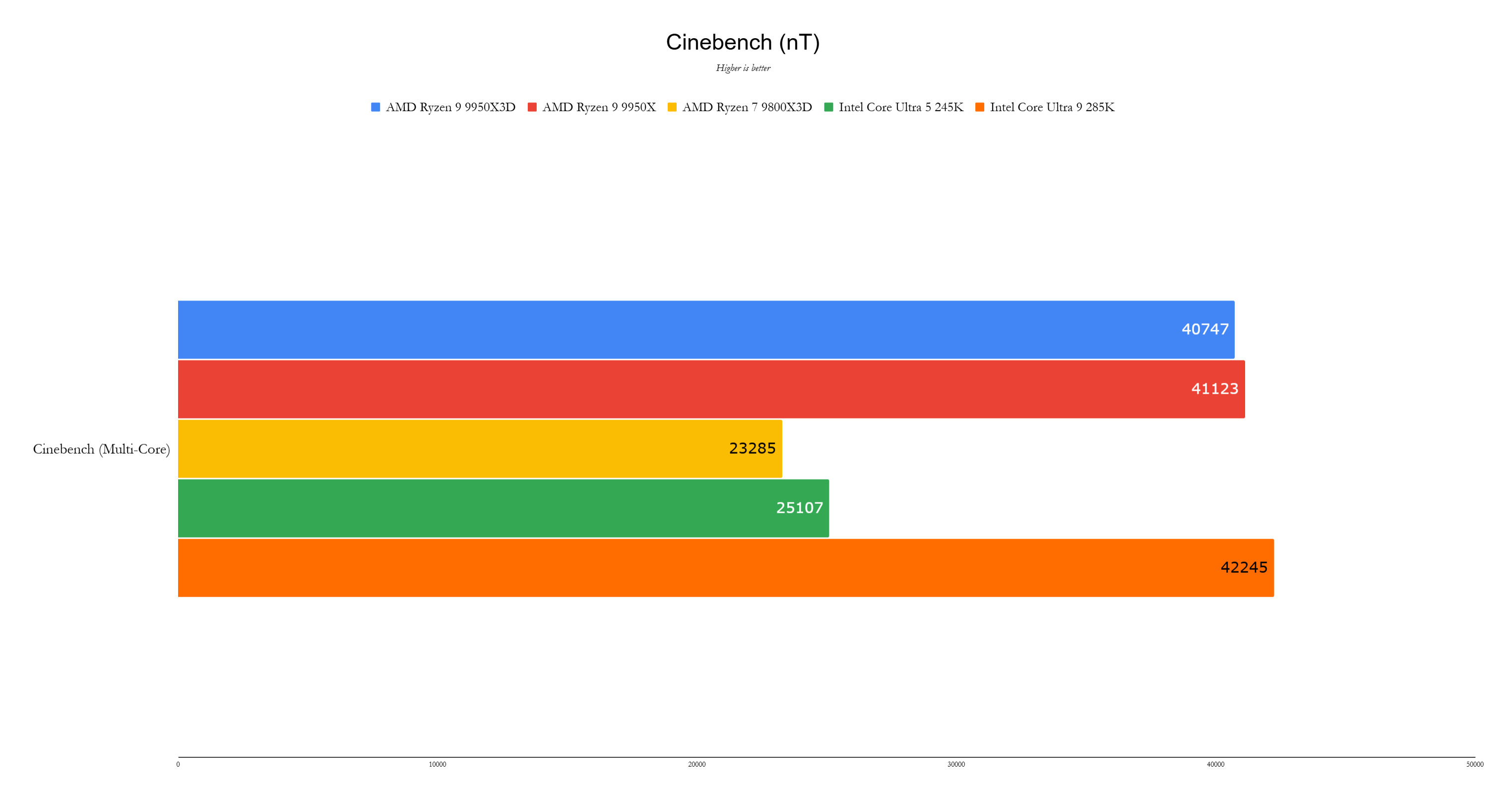 11 Images
11 Images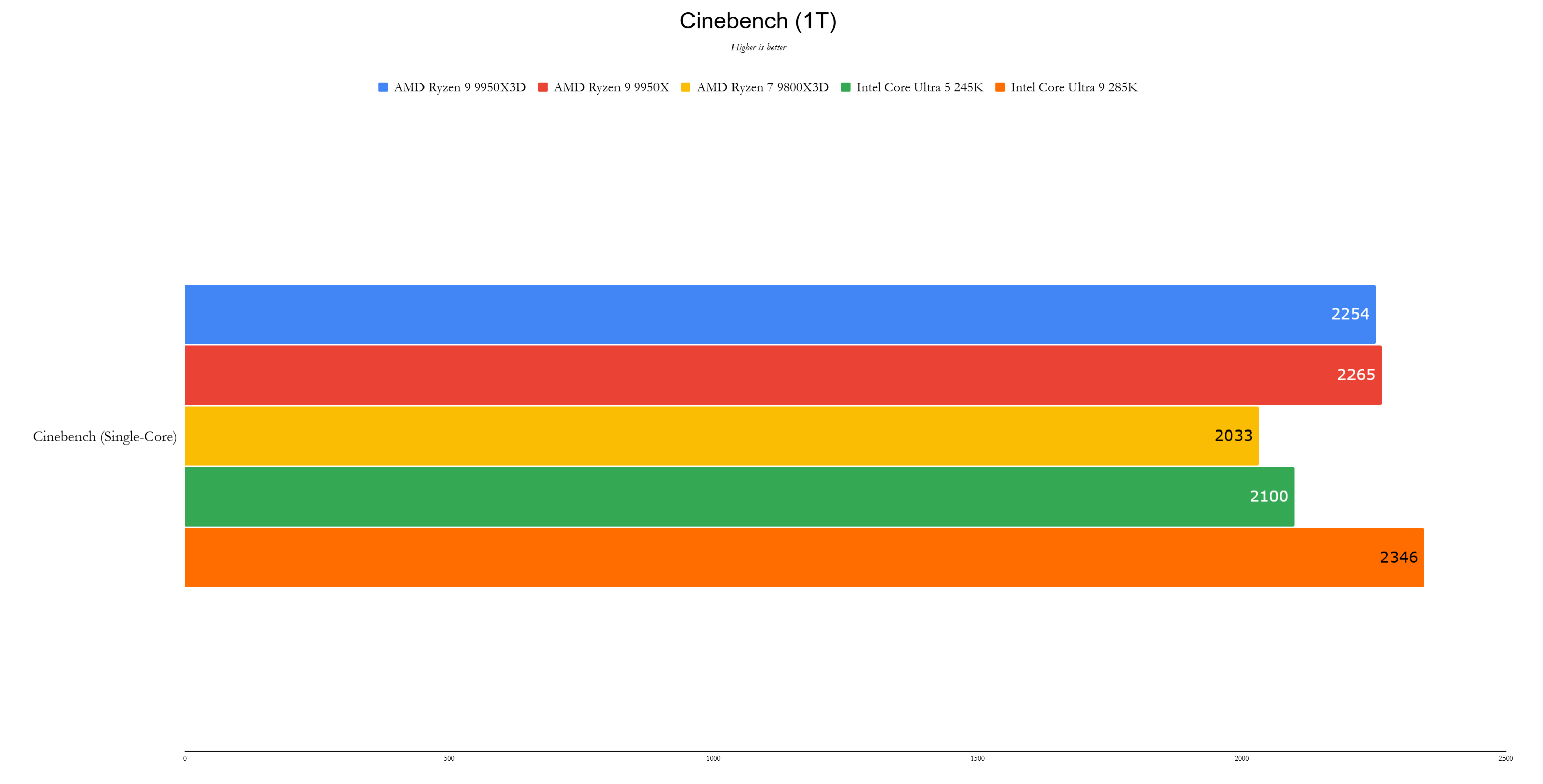
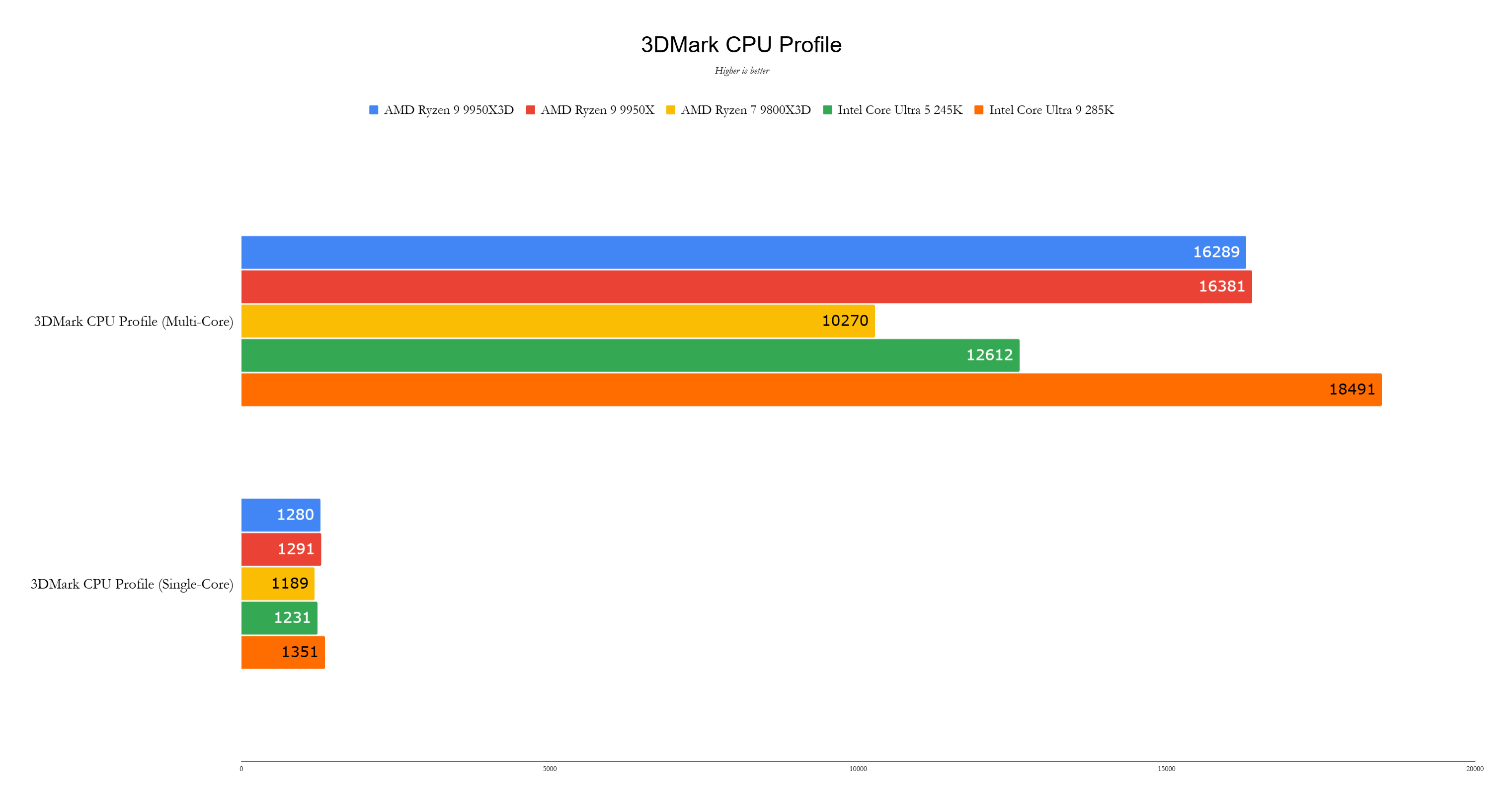
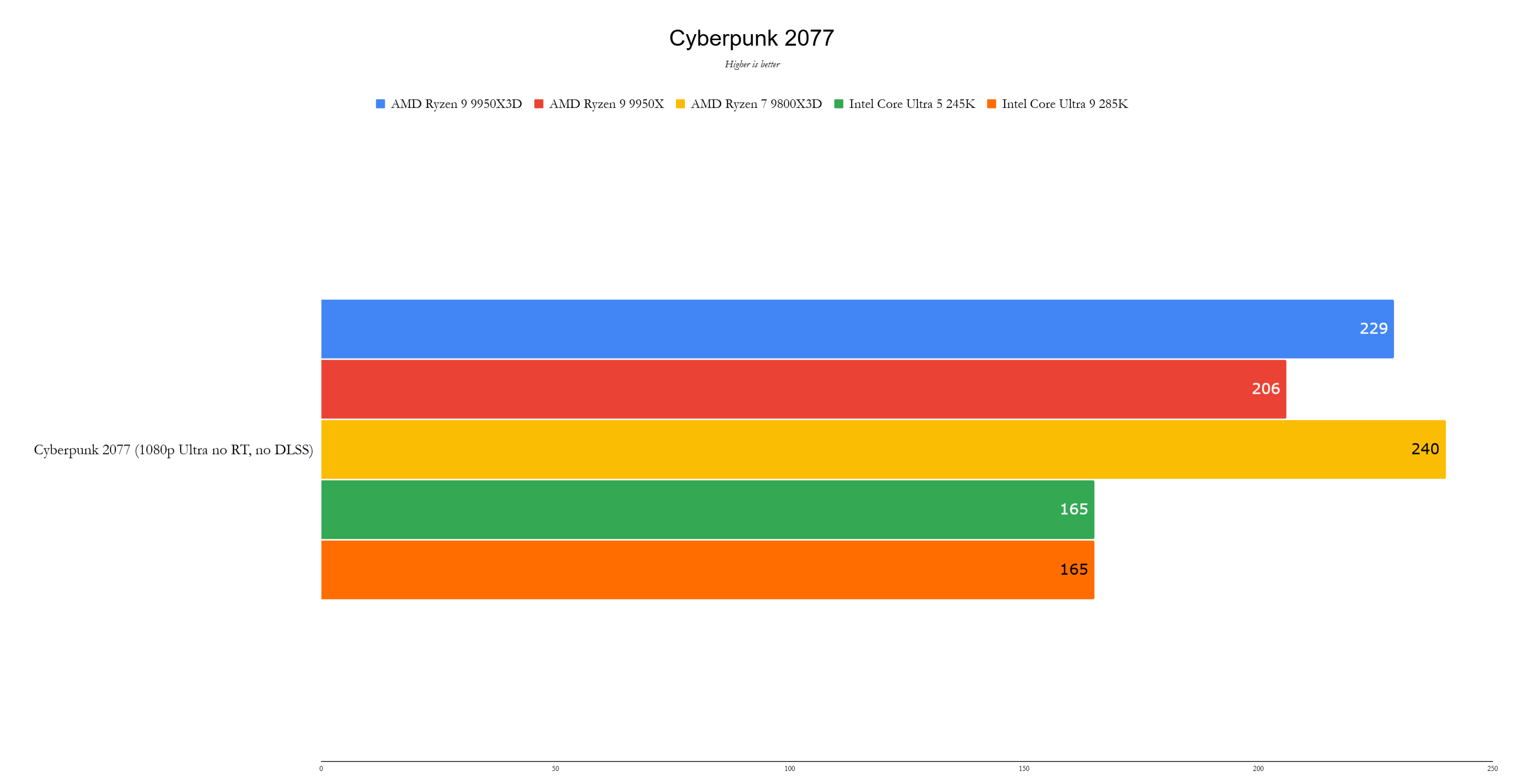
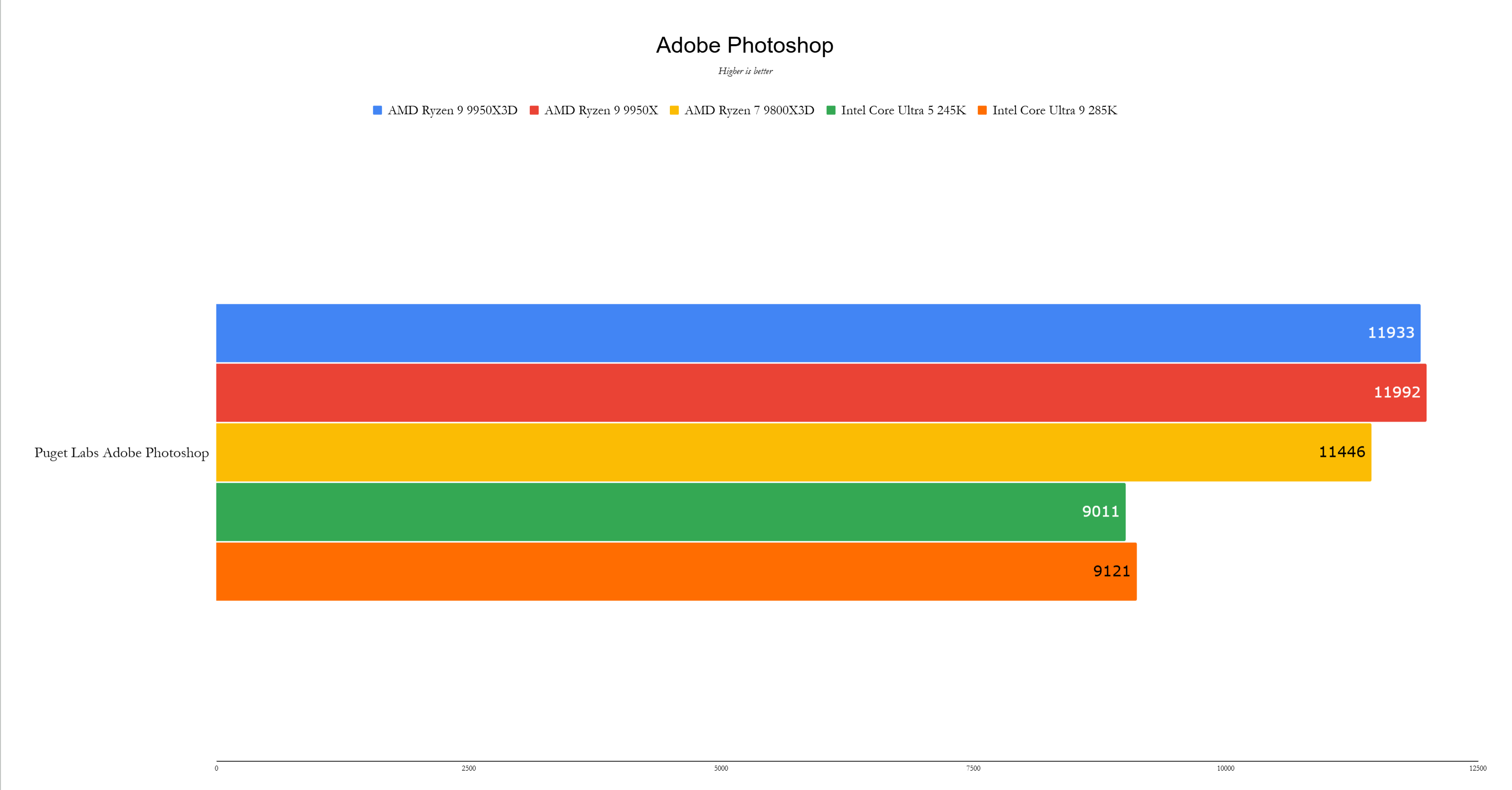
Performance
Before delving into performance results, it's important to note that all CPUs were tested on identical hardware, with the exception of the Ryzen 9 9950X, which was tested on an Asus ROG Crosshair X670E Hero motherboard with a Corsair H170i 360mm AIO cooler. While this hardware difference may impact performance, the effect is minimal, especially since all tests were conducted at stock settings.
AMD Test Bench:
- GPU: Nvidia GeForce RTX 4090
- Motherboard: Asus ROG Crosshair X670E Hero; Asus ROG Crosshair X870E Hero (9800X3D)
- RAM: 32GB G.Skill Trident Z5 Neo @ 6,000MHz
- SSD: 1TB PNY CS3140 Gen4x4 NVMe SSD
- CPU Cooler: Asus ROG Ryujin III 360 ARGB Extreme
The switch to the 9950X was necessitated by a broken mounting screw on the Asus ROG Ryujin III 360mm cooler. I plan to retest the processors in the coming weeks and will update this section if there are significant changes.
The AMD Ryzen 9 9950X3D, with its 16 cores, 32 threads, and a massive 144MB cache, delivers exceptional performance. Even in creative benchmarks where the 9800X3D lagged, the 9950X3D holds its own against the most powerful chips available.
Intel Test Bench:
- GPU: Nvidia GeForce RTX 4090
- Motherboard: Asus ROG Maximus Z890 Hero (200S); Asus Prime Z790-A (14th-Gen)
- RAM: 32GB Corsair Vengeance DDR5 @ 6,000MHz
- SSD: PNY CS3140 1TB Gen 4 x 4 NVMe SSD
- CPU Cooler: Asus ROG Ryujin III 360 ARGB Extreme
Surprisingly, the 9950X3D performs well against the 9800X3D in single-core workloads. In Cinebench 1T, it scores 2,254 points compared to the 9800X3D's 2,033 points, a 10% improvement. In the 3DMark CPU Profile test, the 9950X3D achieves 1,280 points, closely trailing the Intel Core Ultra 9 285K's 1,351 points.
In multi-threaded workloads, the Ryzen 9 9950X3D shines, scoring 40,747 points in Cinebench's multi-core test. While it slightly underperforms compared to the 9950X (41,123 points) and the Intel Core Ultra 9 285K (42,245 points), the trade-off is justified by its superior gaming performance.
In Total War: Warhammer 3 at 1080p with Ultra settings, the 9950X3D achieves 274 fps when paired with the RTX 4090, outperforming the 9800X3D (254 fps) and the Core Ultra 9 285K (255 fps). However, in Cyberpunk 2077 at 1080p with the Ultra preset and ray tracing disabled, it delivers 229 fps, slightly less than the 9800X3D's 240 fps but still significantly faster than the Intel processor's 165 fps.
Overkill?
While the AMD Ryzen 9 9950X3D is currently the most powerful gaming processor available, it's not necessarily the best choice for everyone. Most users will find the Ryzen 7 9800X3D, priced at a more affordable $479, perfectly adequate. The 9950X3D is best suited for gamers who also engage in creative tasks like using Photoshop and Premiere, where it offers a 15% performance boost over the 9800X3D. For those focused solely on gaming, saving the extra $220 for a better graphics card might be a wiser investment.


 3 Images
3 Images

 11 Images
11 Images



 LATEST ARTICLES
LATEST ARTICLES 












